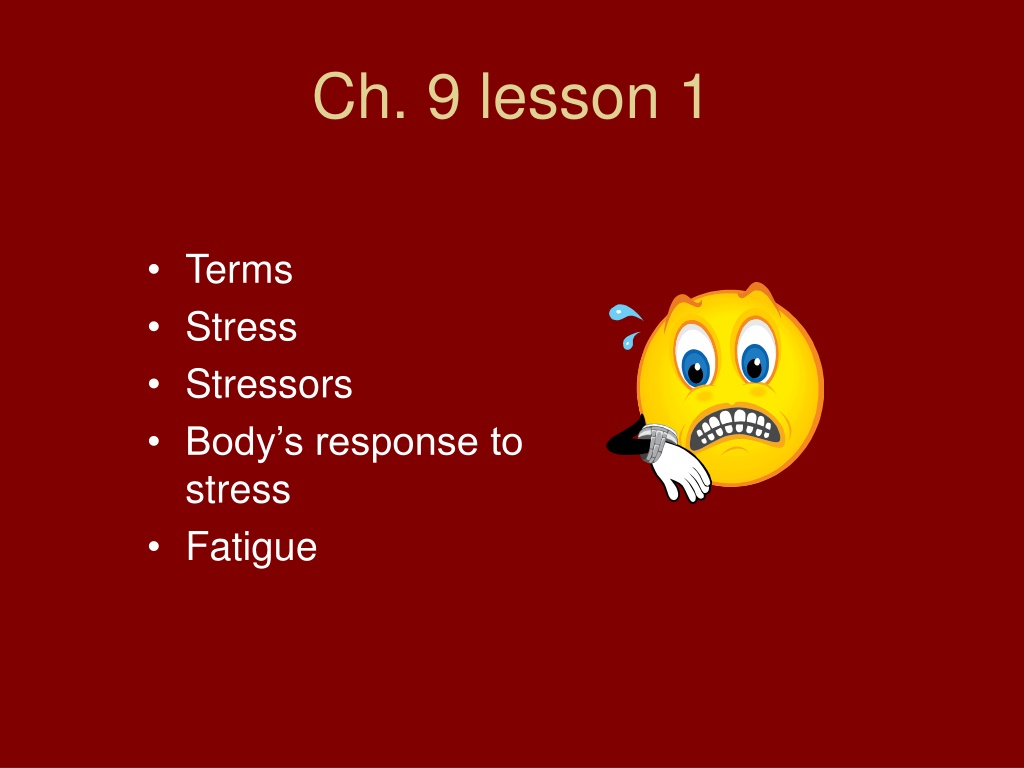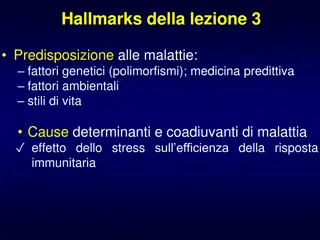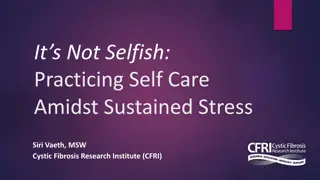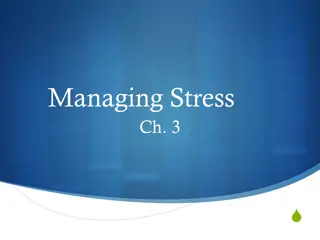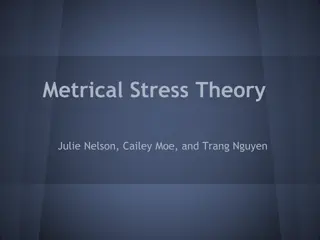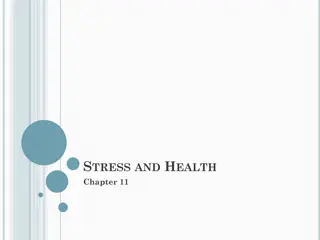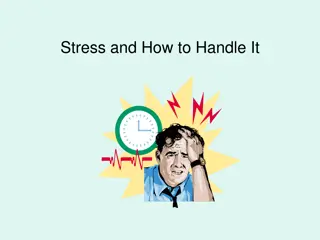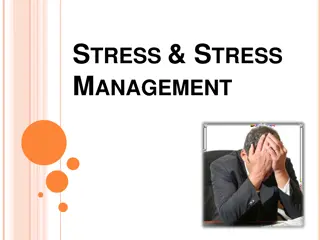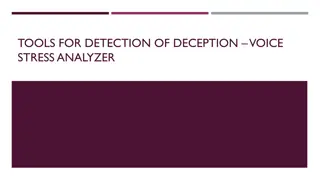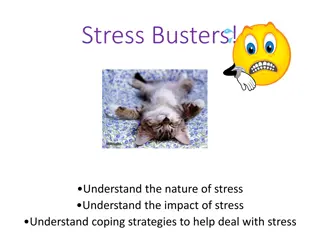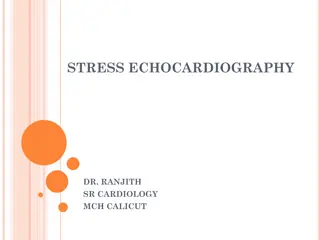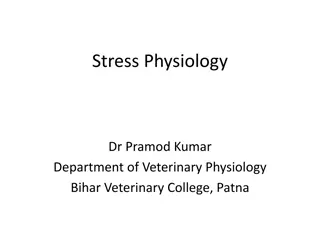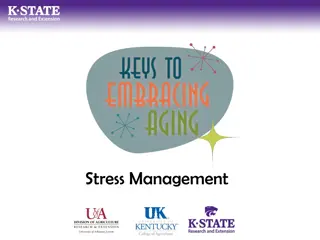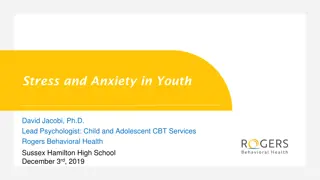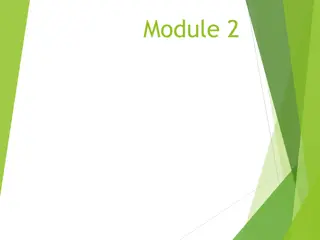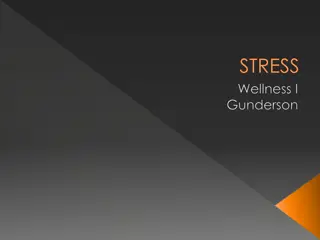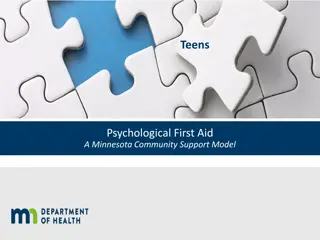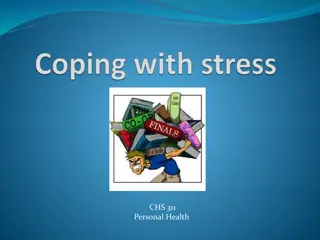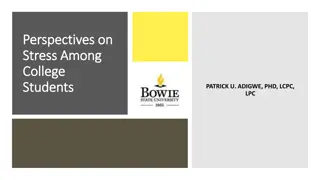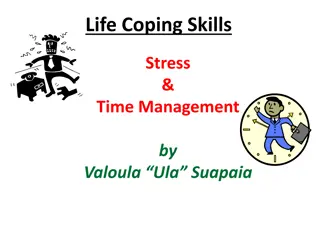Understanding Stress: Types, Stressors, and Body Response
This content discusses the different types of stress, including distress and eustress, various stressors such as biological, environmental, and cognitive factors, and how the body responds to stress through stages like alarm, resistance, and fatigue. It also explores the impact of excessive stress on health and well-being.
Download Presentation

Please find below an Image/Link to download the presentation.
The content on the website is provided AS IS for your information and personal use only. It may not be sold, licensed, or shared on other websites without obtaining consent from the author. Download presentation by click this link. If you encounter any issues during the download, it is possible that the publisher has removed the file from their server.
E N D
Presentation Transcript
Ch. 9 lesson 1 Terms Stress Stressors Body s response to stress Fatigue
Ch. 9 lesson 1 objectives Distinguish between distress and eustress Identify stressors in daily life Discuss how the body responds to stressors Distinguish between physical, pathological, and psychological fatigue Relate excessive stress to disease
Types of stress Distress - Negative stress, too much pressure or trauma Example : Too much homework or missing the bus Eustress - Positive stress, helps you achieve goals Example : Concern about final grade makes you study harder
Kinds of stressors Biological - Biochemical imbalances, mental or physical illness, disabilities, or injuries Environmental - Poverty, pollution, noise, natural disasters Cognitive - Way you perceive a situation
Kinds of stressors (cont) Personal behavior - Negative reactions caused by drugs Life situations Family death, divorce, friendship problems
Bodys response to stress How your body and mind reacts to stress Nervous and endocrine system activated Most of body s response is involuntary
Bodys response to stress (cont) 1ststage (alarm) Hypothalamus (nerve center in brain) is excited. Pituitary gland secretes a hormone, which in turn stimulates the adrenal glands to produce adrenaline.
Bodys response to stress (cont) 2ndstage (resistance) When the body tries to repair itself from the stressful event and return to it s normal state. If prolonged you may become ill. Incredible feats of strength
Bodys response to stress (cont) 3rdstage (fatigue) Tired feeling, lowers one s level of activity or desire
Fatigue 3 types of fatigue 1. Physical - Lactic acid build up in muscles and causes soreness 2. Psychological Results from constant worry, depression, overwork, boredom, isolation
Fatigue (cont) 3. Pathological - Tiredness brought on by overworking body s defenses for fighting disease. The flu, overweight, poor nutrition, drugs contribute to this fatigue.
